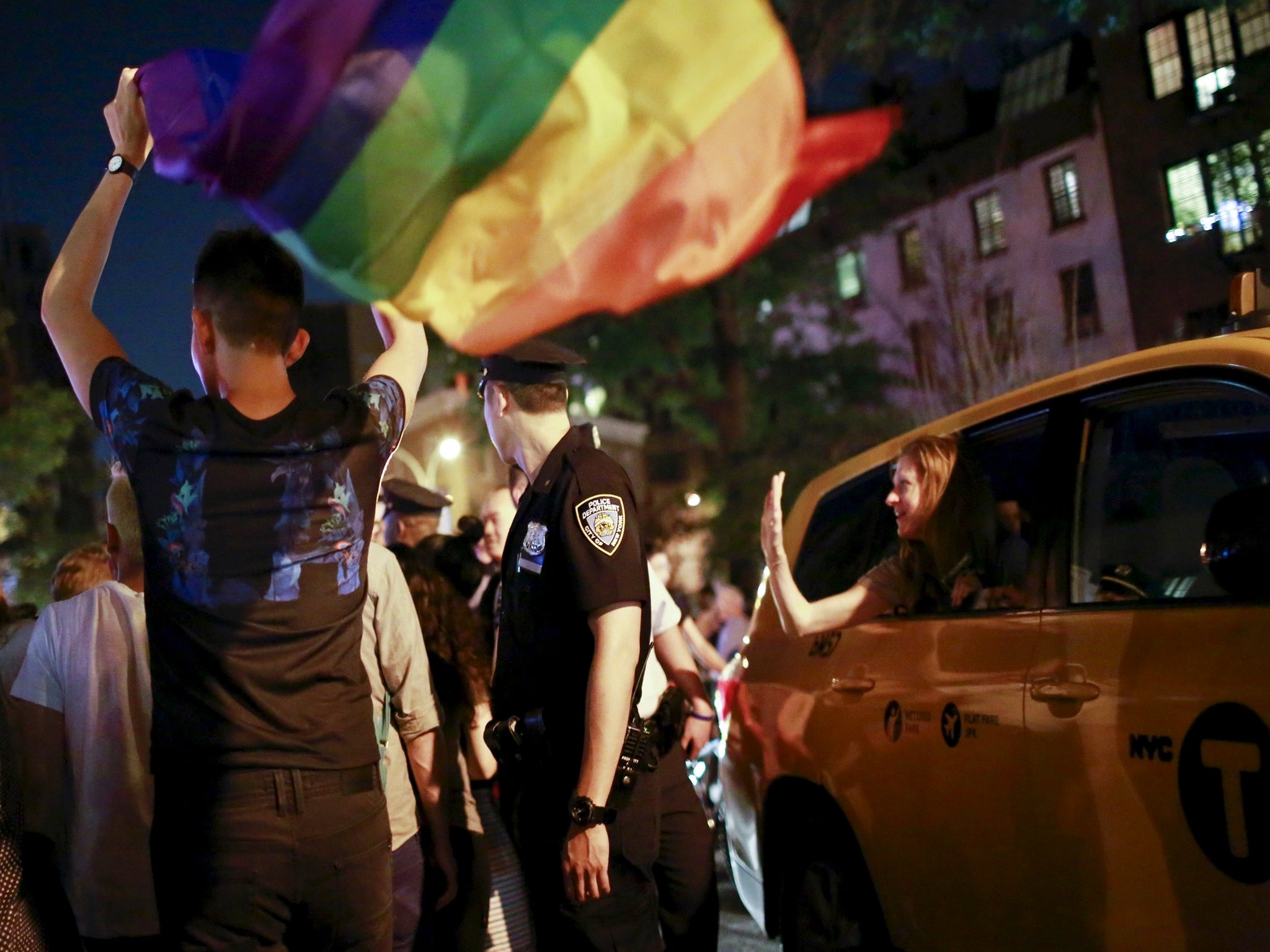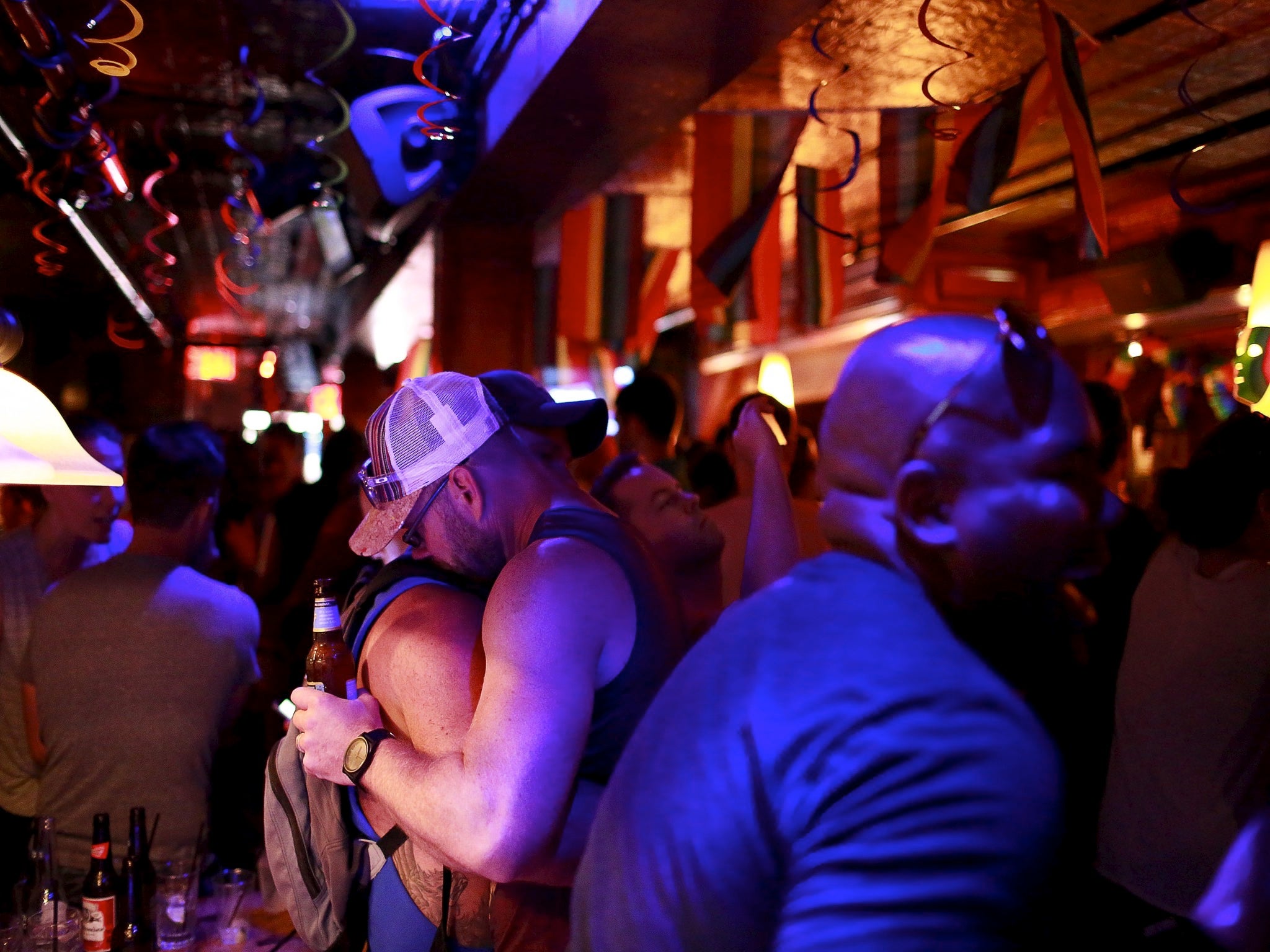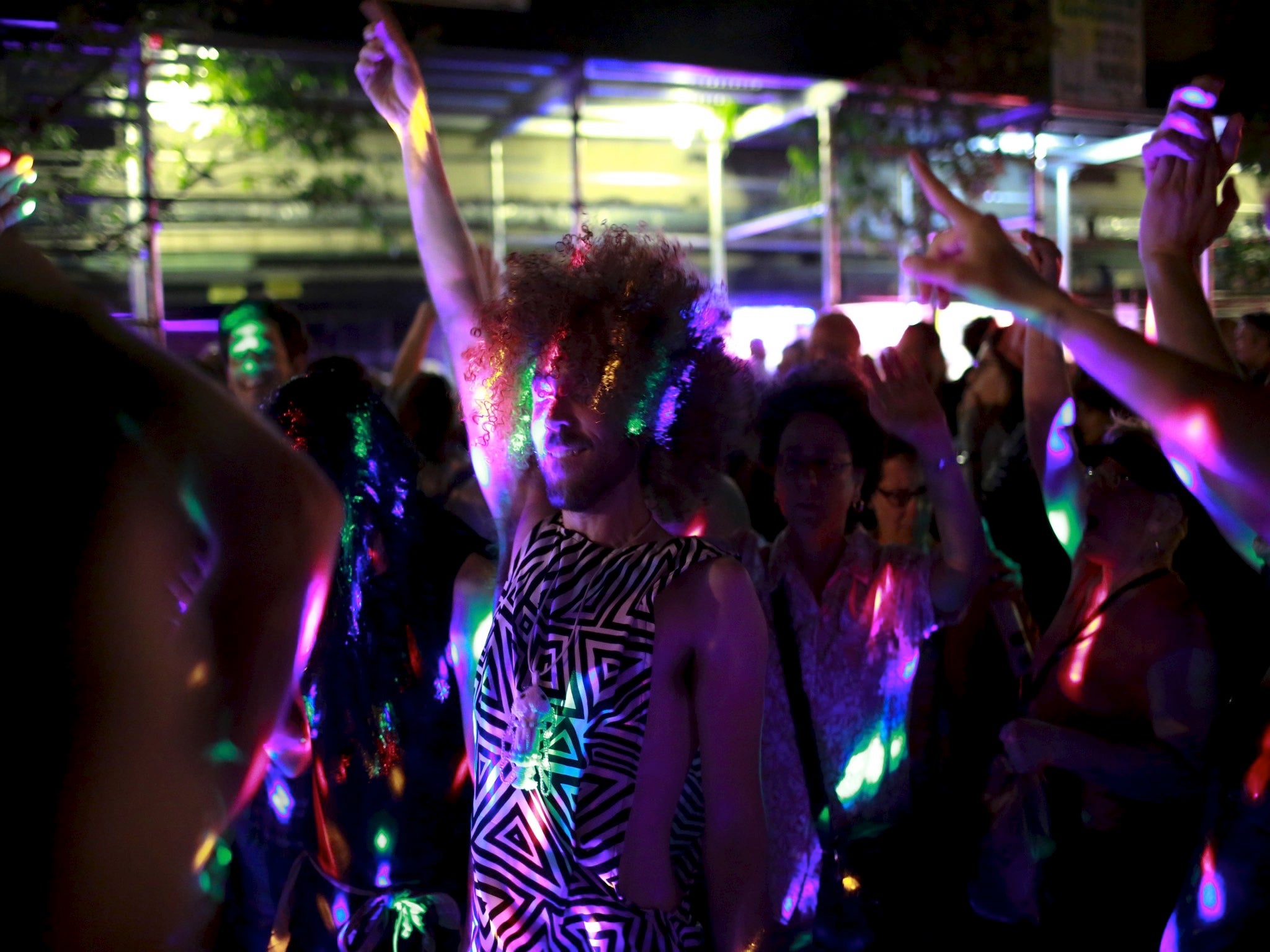Gay marriage: Patrons of Stonewall Inn noisily celebrate historic Supreme Court decision
Bar has long been at centre of LGBT rights struggle in the US

Your support helps us to tell the story
From reproductive rights to climate change to Big Tech, The Independent is on the ground when the story is developing. Whether it's investigating the financials of Elon Musk's pro-Trump PAC or producing our latest documentary, 'The A Word', which shines a light on the American women fighting for reproductive rights, we know how important it is to parse out the facts from the messaging.
At such a critical moment in US history, we need reporters on the ground. Your donation allows us to keep sending journalists to speak to both sides of the story.
The Independent is trusted by Americans across the entire political spectrum. And unlike many other quality news outlets, we choose not to lock Americans out of our reporting and analysis with paywalls. We believe quality journalism should be available to everyone, paid for by those who can afford it.
Your support makes all the difference.There was never going to be enough room for everyone who wanted to get inside the Stonewall Inn. A long line of happy, grinning faces waiting their turn stretched down the pavement on Greenwich Village’s Christopher Street.
And so, on Friday night, the party to celebrate a historic court decision continued both inside and outside the similarly historic bar, perhaps the most important address in the long and often agonising struggle for LGBT rights in the United States.
“I think there is more warmth, there is more tenderness today,” said Ellen Gollen. “There is a feeling of relief. I had hope for [the court’s decision] but I was not certain.”

The raucous, celebratory party outside the bar at number No 53 flooded the street, which the police had sealed off in anticipation of large crowds. Many hugged, danced and kissed; others stood in more quiet contemplation of the Supreme Court’s decision that made same-sex marriage legal in all 50 of the US states.
A number were sprayed in colours that ran from red to violet.
“Four years ago when same-sex marriage was legalised in New York, I felt like a full citizen of New York. Today, I feel like I am an American,” said Bob de Luna, 54, who works as a health care public relations specialist.
He said he believed the change in the rights of the LGBT community, as underscored by the court’s decision, had been brought about by a number of factors – more public gay, lesbian and transgender people in public life and popular culture, and more people acknowledging members of their family who were from the community.
“The more people you know, the less alien it is,” he said. “People are not afraid of what is known to them.”
The bar has not always been such a happy, celebratory place. In the early hours of June 28, 1969, gay patrons refused to quietly cooperate with a routine police raid. The threw bottles and bricks and rubbish bins.
The protests lasted several days and become a rallying point for various people frustrated and angry at the city’s – and the nation’s – discrimination against the LGBT community.
A year later, the first gay pride parade took place in New York City. On Tuesday, the bar was granted landmark status New York City's Landmarks Preservation Commission.
“Forty-six years ago, it’s amazing,” said Matthew McMorrow, a coordinator at the Empire State Pride Agenda, told MSNBC. “This is the place where people were fed up with being brutalised, with being bullied.”
Steve Pickett, who is 60 and originally from the UK, moved to New York in the mid-70s. He remembered it as a wonderful, exciting carefree time, before the darkness of the HIV/AIDS crisis in the late 1970s and early 1980s. He said it was “wild”.

Mr Pickett welcomed the court’s decision, but he pointed to dozens of states across the country that still discriminated against members of the LGBT community.
He said up to 30 states still do not have laws prohibiting employment discrimination in both the private and public sector and he said that New York remained something of a bubble for LGBT rights.
He remembered the activists who had fought 40 years ago for the freedoms the community was now enjoying.
“There were people who would dress up in drag because they could not not dress up in drag. And they were visible, they could be not avoided,” he said.
“But they were the heroes. They had to face a hard time. They were the soldiers.”
Subscribe to Independent Premium to bookmark this article
Want to bookmark your favourite articles and stories to read or reference later? Start your Independent Premium subscription today.
Join our commenting forum
Join thought-provoking conversations, follow other Independent readers and see their replies
Comments